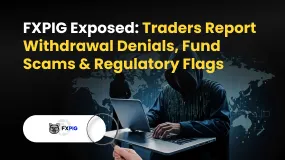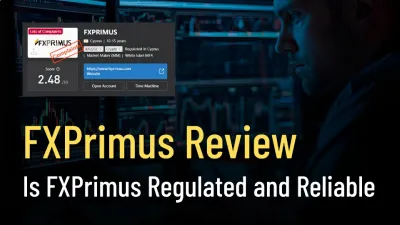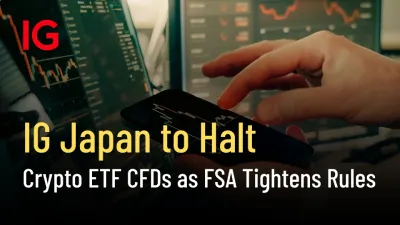简体中文
繁體中文
English
Pусский
日本語
ภาษาไทย
Tiếng Việt
Bahasa Indonesia
Español
हिन्दी
Filippiiniläinen
Français
Deutsch
Português
Türkçe
한국어
العربية
How Can Multiple Brokers Have The Same Address?!
Abstract:Understanding the phenomenon of multiple forex brokers sharing registered addresses and the underlying potential risks as well as implications.

In the world of Forex trading, it is not uncommon to discover that multiple brokers operate from the same registered address or business address. This intriguing phenomenon raises questions about the reasons behind such clustering and the potential risks associated with it. In this article, we will delve into the factors contributing to this occurrence, shed light on the underlying risks involved, and help traders navigate this landscape with increased awareness.
The clustering of Forex brokers with the same registered address often stems from various factors. Firstly, establishing a business in a specific jurisdiction might offer tax benefits or regulatory advantages. By sharing a registered address, brokers can pool resources, share administrative costs, and benefit from a collective presence in a desirable location. Moreover, regulatory bodies in certain jurisdictions may enforce stringent requirements, making it easier for brokers to meet compliance obligations by utilizing shared resources.
Example of different brokers sharing the same address:


While the practice of sharing a registered address may have legitimate reasons, it is crucial for traders to be aware of the potential risks associated with this phenomenon. One significant concern is the possibility of unscrupulous activities, such as fraudulent schemes or unethical practices. In instances where a broker acts dishonestly, shared addresses can complicate efforts to hold them accountable, as tracing responsibilities and identifying individuals involved becomes challenging.
Furthermore, shared addresses can create a perception of uniformity among brokers, leading traders to assume they are dealing with separate entities. This misconception can obscure the distinction between reputable and untrustworthy brokers, putting unsuspecting traders at a higher risk of falling victim to scams or experiencing inadequate client protection.
To safeguard against the risks associated with shared registered addresses, traders must prioritize due diligence. Thoroughly researching the regulatory framework of the jurisdiction in question is paramount, as it provides insights into the level of oversight and protection available to traders. Additionally, conducting comprehensive background checks on individual brokers, including their reputation, track record, and client feedback, can help mitigate potential risks.
Furthermore, traders should seek brokers who operate under robust regulatory frameworks and adhere to industry best practices, even if they share a registered address. A reputable broker will typically display transparency in their operations, maintain segregated client accounts, and provide accessible customer support.
In conclusion, the existence of multiple Forex brokers sharing registered addresses is a complex phenomenon with both legitimate reasons and inherent risks. Traders must exercise caution and conduct thorough research when selecting a broker, focusing on factors such as regulatory compliance, reputation, and client protection. By being informed and vigilant, traders can navigate this landscape with greater confidence and reduce the likelihood of falling victim to fraudulent practices or unethical behaviour.

Disclaimer:
The views in this article only represent the author's personal views, and do not constitute investment advice on this platform. This platform does not guarantee the accuracy, completeness and timeliness of the information in the article, and will not be liable for any loss caused by the use of or reliance on the information in the article.
Read more

FXPIG Exposed: Traders Report Withdrawal Denials, Fund Scams & Regulatory Flags
Do you face massive losses due to astonishing spreads at FXPIG? Have you witnessed multiple trade executions by the Georgia-based forex broker even though you wanted to execute a single order? Has this piled on losses for you? Is the FXPIG withdrawal too slow? Maybe your trading issues resonate with some of your fellow traders. In this FXPIG review article, we have shared these issues so that you can introspect them thoroughly before deciding on the best forex trader.

Does WealthFX Generate Wealth or Losses for Traders? Find Out in This Review
The name WealthFX sounds appealing for all those wishing for a rewarding forex journey. However, behind the aspiring name are multiple complaints against the Comoros-based forex broker. These trading complaints dampen the broker’s reputation in the forex community. In this WealthFX review article, we have shared some of these complaints here. Take a look!

FXPrimus Review: Is FXPrimus Regulated and Reliable for 2025?
FXPrimus is a CySEC-regulated forex broker offering MT4, MT5, and WebTrader with flexible leverage and diverse trading instruments since 2009.

IG Japan to Halt Crypto ETF CFDs as FSA Tightens Rules
IG Japan will end cryptocurrency ETF CFDs after new FSA guidance, forcing traders to close positions by January 31, 2026, under stricter crypto rules.
WikiFX Broker
Latest News
Trillium Financial Broker Exposed: Top Reasons Why Traders are Losing Trust Here
FIBO Group Ltd Review 2025: Find out whether FIBO Group Is Legit or Scam?
Amillex Withdrawal Problems
Is INGOT Brokers Safe or Scam? Critical 2025 Safety Review & Red Flags
150 Years Of Data Destroy Democrat Dogma On Tariffs: Fed Study Finds They Lower, Not Raise, Inflation
CQG Partners with Webull Singapore to Power the Broker’s New Futures Trading Offering
【WikiEXPO Global Expert Interviews】Ashish Kumar Singh: Building a Responsible and Interoperable Web3
Trump: India\s US exports jump despite 50% tariffs as trade tensions ease
IEXS Review 2025: A Complete Expert Analysis
CySEC Flags 21 Unauthorized Broker Websites in 2025 Crackdown
Currency Calculator




